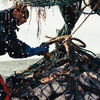Processing Your Payment
Please do not leave this page until complete. This can take a few moments.
- News
-
Editions
-
- Lists
-
Viewpoints
-
Our Events
-
Event Info
- Business Leaders of the Year Reception 2025
- Women's Leadership Forum 2025
- On the Road with Mainebiz in Bethel
- Health Care Forum 2025
- On The Road with Mainebiz in Greenville
- On The Road with Mainebiz in Waterville
- Small Business Forum 2025
- Outstanding Women in Business Reception 2025
- On The Road with Mainebiz in Bath
- 60 Ideas in 60 Minutes Portland 2025
- 40 Under 40 Awards Reception 2025
- On The Road with Mainebiz in Lewiston / Auburn
- 60 Ideas in 60 Minutes Bangor 2025
Award Honorees
- 2025 Business Leaders of the Year
- 2024 Women to Watch Honorees
- 2024 Business Leaders of the Year
- 2023 NextUp: 40 Under 40 Honorees
- 2023 Women to Watch Honorees
- 2023 Business Leaders of the Year
- 2022 NextUp: 40 Under 40 Honorees
- 2022 Women to Watch Honorees
- 2022 Business Leaders of the Year
-
-
Calendar
-
Biz Marketplace
- News
- Editions
- Lists
- Viewpoints
-
Our Events
Event Info
- View all Events
- Business Leaders of the Year Reception 2025
- Women's Leadership Forum 2025
- On the Road with Mainebiz in Bethel
- Health Care Forum 2025
- On The Road with Mainebiz in Greenville
- + More
- On The Road with Mainebiz in Waterville
- Small Business Forum 2025
- Outstanding Women in Business Reception 2025
- On The Road with Mainebiz in Bath
- 60 Ideas in 60 Minutes Portland 2025
- 40 Under 40 Awards Reception 2025
- On The Road with Mainebiz in Lewiston / Auburn
- 60 Ideas in 60 Minutes Bangor 2025
- - Less
Award Honorees
- 2025 Business Leaders of the Year
- 2024 Women to Watch Honorees
- 2024 Business Leaders of the Year
- 2023 NextUp: 40 Under 40 Honorees
- 2023 Women to Watch Honorees
- 2023 Business Leaders of the Year
- + More
- 2022 NextUp: 40 Under 40 Honorees
- 2022 Women to Watch Honorees
- 2022 Business Leaders of the Year
- Nomination Forms
- Calendar
- Biz Marketplace
Wyman & Son scouts China markets
 Photo/David A. Rodgers
Ed Flanagan, CEO and president of Jasper Wyman & Son, hopes to export Maine wild blueberry products to new markets in China
Photo/David A. Rodgers
Ed Flanagan, CEO and president of Jasper Wyman & Son, hopes to export Maine wild blueberry products to new markets in China
Ed Flanagan didn’t know what to expect when he traveled to a trade show in Shanghai, China, in May.
The CEO and president of Jasper Wyman & Son, the largest wild blueberry grower in the United States, was hoping to make connections that would lead to a new market for Maine’s succulent natural treasures. When Flanagan got home, he was greeted by several e-mails and voicemails from prospective Chinese customers.
“We went over there thinking it was going to be a first step in a long march,” says Flanagan from his cell phone as he drives through Quebec province. “I wouldn’t be surprised if we do business there before the year is out.”
Jasper Wyman & Son already exports frozen wild blueberries from the company’s Down East headquarters in Milbridge and from its facility in Prince Edward Island, Canada, to Europe, Israel and Japan, says Flanagan. And the company is close to sealing a deal with South Korea.
But China’s huge population and emerging middle class represent the greatest growth potential for the company. If Wyman officials can strike the right deal with a Chinese food distribution firm, Flanagan says there could be tremendous growth.
“We see a lot of fits for a lot of our products over there,” Flanagan says.
Besides frozen wild blueberries, the company’s blueberry juice line and canned blueberries seem suitable for the Chinese market. Flanagan says roughly 5% of China’s population, or about 250 million people — the equivalent of the entire U.S. population — is considered upper middle class and the likeliest consumers of Wyman products.
The challenge for companies like Flanagan’s is to come up with the right pricing model so products don’t cost too much after additional taxes and tariffs are imposed by Chinese customs. Flanagan says if the cost of Wyman’s wild blueberries ends up being too high for the average middle-class Chinese consumer, he might only be able to sell to five-star hotels on the mainland.
Bryan Bozsik, a trade assistance manager at the Maine International Trade Center, says companies face several export expenses, including value-added taxes of up to 17% and consumption taxes of up to 3%, in China. The Chinese tariff on wild blueberries is 30%.
The trade route to China is further complicated by several regulatory agencies that have to be cleared before American products can enter the mainland. In trade with the Chinese, it’s important to “make sure you know who you’re working with and you have trustworthy partners,” says Bozsik.
But there is enormous potential for those willing to clear the trade hurdles. In 2009, Canada exported $6.6 million of fruits and nuts to China compared with Maine’s $1.7 million for similar goods.
Patricia Kontur, director of programs with the Wild Blueberry Association of North America in Old Town and the Maine Wild Blueberry Commission, also recently returned from a trade mission to China where she observed a growing demand for the berry. Its popularity is fueled by wild blueberries’ healthy antioxidant properties and a familiarity stemming from blueberries that have made their way from Japan, where they’ve been imported for the past 15 years.
“I think the [Chinese] market is going to change and evolve,” she says, representing new markets for Maine growers.
That’s welcome news as more international growers bring their berries to market. Kontur says markets in the United States and other countries have become saturated thanks to increased competition from growers in Canada, South America and Europe.
Maine’s 575 wild blueberry growers are part of a state industry valued at about $250 million per year. According to a 2007 Wild Blueberry Commission report, Maine’s wild blueberry industry created 2,540 jobs and its harvest has grown from 20 million pounds in 1980 to 100 million pounds in 2007. (Flanagan would not disclose Jasper Wyman & Son’s sales revenues, but Information Resources Inc. reported that Wyman sold more than $8.8 million of wild blueberry products in the United States and overseas in 2008.)
As awareness about blueberries’ health benefits have grown, demand for Maine’s native fruit has grown right along with it, says Kontur. According to the U.S. Highbush Blueberry Council, blueberries contain antioxidants that help reduce the risk of cancer, cardiovascular disease, Alzheimer’s and other diseases.
That growing demand is the main reason Wyman & Son built a 71,000-square-foot processing facility in Deblois to accommodate an increase in blueberry sales and a rise in the imported raspberries, strawberries and blackberries that the company also processes, Flanagan told Mainebiz in May 2008. The expansion was estimated to cost between $8 million and $15 million, but sales had tripled since the mid-1990s, Flanagan said, calling the expansion “long overdue.” Today, the company employs 160.
To help him navigate the Chinese business environment, Flanagan hired Suzanne Fox, president of Fox Intercultural Consulting Services of Falmouth, who prospected for Wyman & Son. She eventually connected the company with a consulting firm in China to help locate the food distributor Wyman & Son needs to enter the Chinese market. It’s early, but Flanagan is optimistic.
“We’ve got a mountain of follow-up work to do,” he says.
Consumers with different tastes
Patricia Kontur, director of programs with the Wild Blueberry Association of North America in Old Town, notices how people use blueberries. On a recent trip to China, she saw lots of blueberry gum and blueberry-flavored potato chips, but not so many blueberry muffins or blueberry pancakes. Some bakeries sell conventional Western blueberry foods in China, but items like blueberry juice, chocolate-covered blueberries and blueberry-filled marshmallows tend to be more popular.









Comments